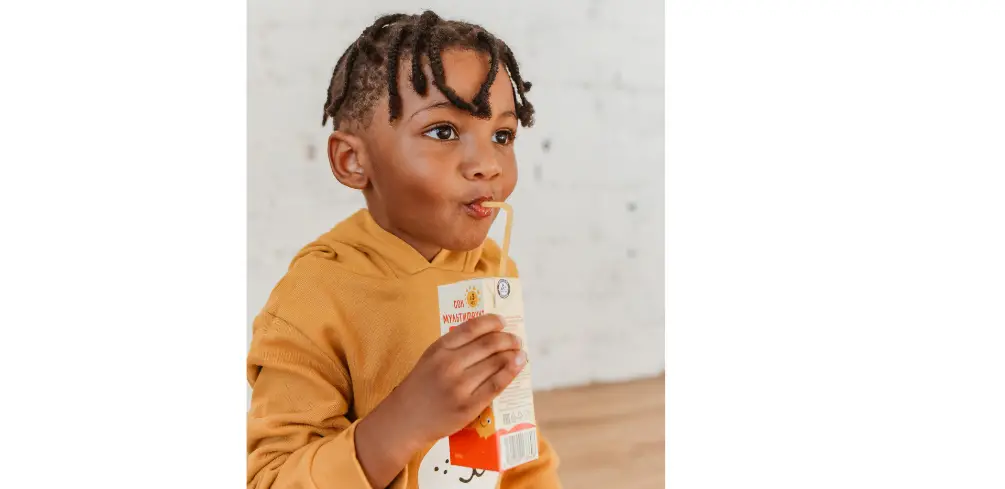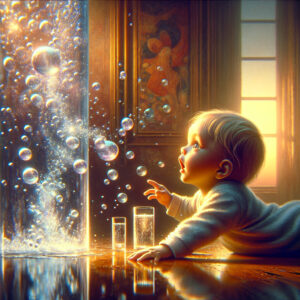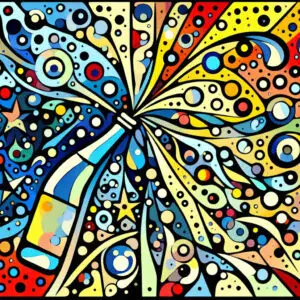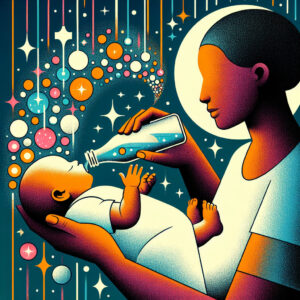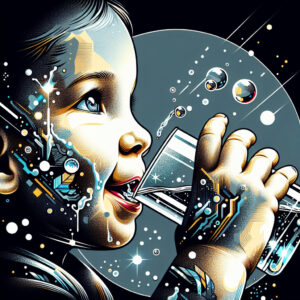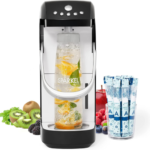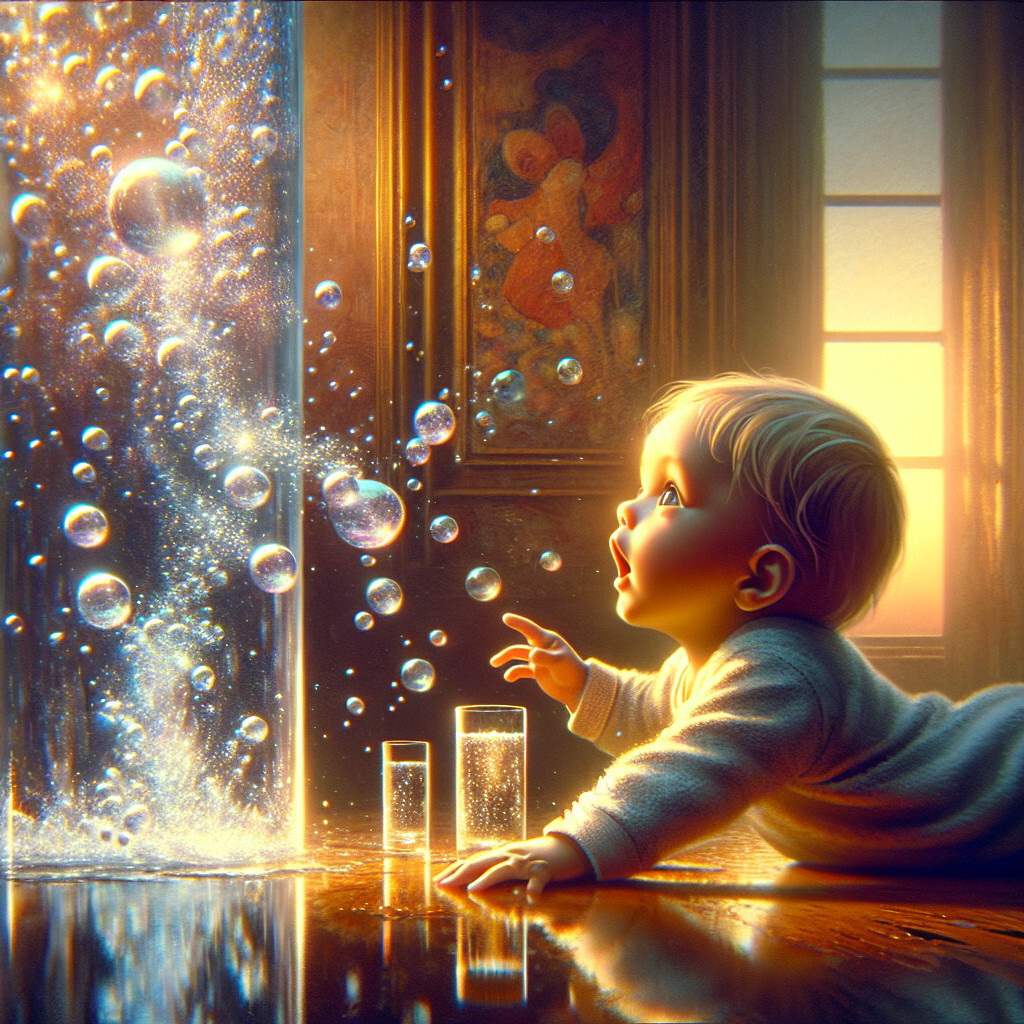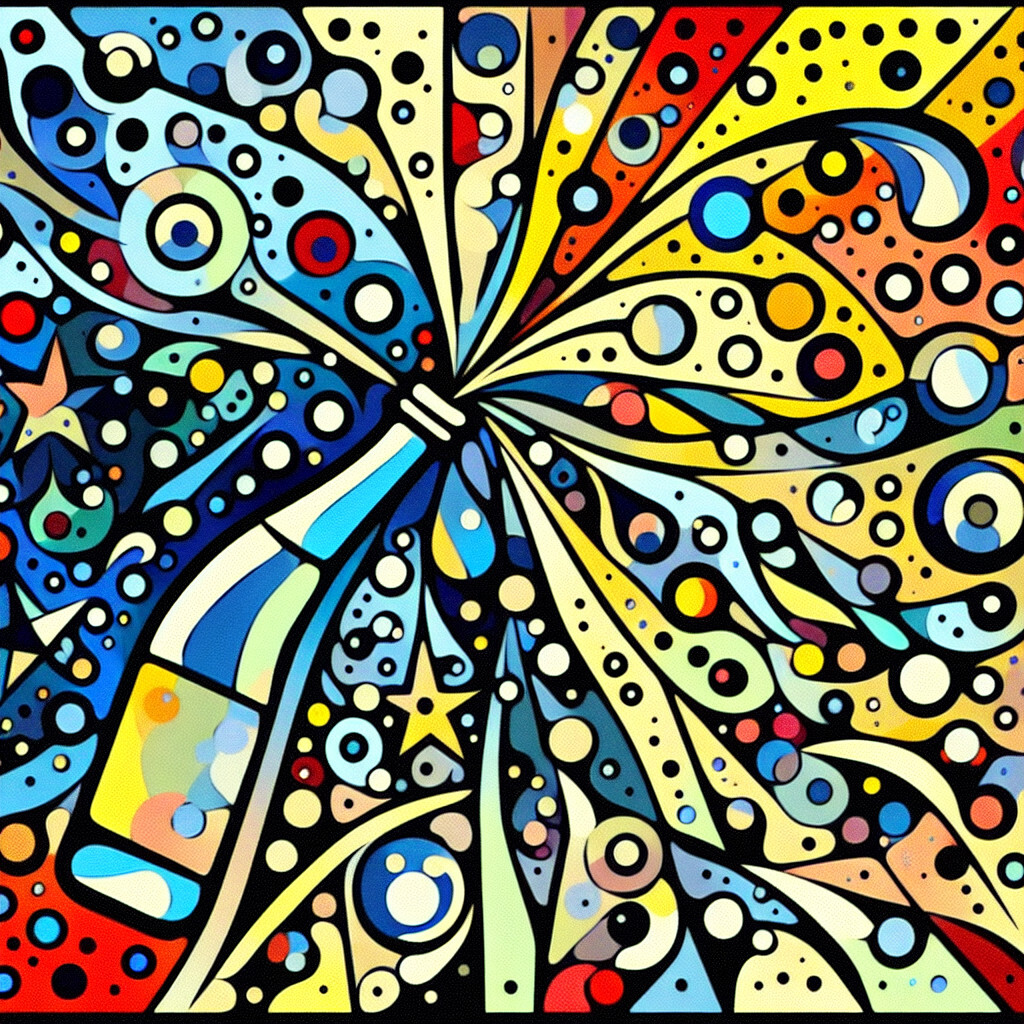Amazon Affiliate Disclaimer
As an affiliate, we earn from qualifying purchases. We get commissions for purchases made through links in this post.
Sparkling water, also known as carbonated water or soda water, has been infused with carbon dioxide gas. This process gives the water a distinctive fizzy or bubbly quality. It is often used as a substitute for sugary carbonated drinks. Sparkling water has gained widespread popularity recently, particularly as a healthier alternative to soda. It is often marketed as a low-calorie or calorie-free beverage. It does not contain added sugars or artificial sweeteners like many soda drinks. However, there are some concerns about the potential adverse effects of consuming sparkling water, particularly in large quantities. Despite these concerns, many people enjoy sparkling water as a refreshing and thirst-quenching beverage.
Can babies have sparkling water?
Giving babies sparkling water is generally not recommended due to the potential risks it may pose. Carbonated beverages, including sparkling water, can cause discomfort and bloat in adults. This can be even more pronounced in babies and young children. In addition, the carbonation in sparkling water can lead to an increase in gas, which can cause abdominal pain and discomfort in babies.
There is also a risk that the carbonation in sparkling water could lead to an imbalance in a baby’s electrolytes, which are essential minerals that help regulate the body’s fluid levels. Electrolyte imbalances can lead to various health problems, including dehydration and muscle cramps.
However, sparkling water may have some potential benefits for babies. For example, it is often suggested that sparkling water can help alleviate constipation in babies, as the carbonation may help to stimulate the bowels. There is also some evidence to suggest that the minerals found in certain types of sparkling water, such as calcium and magnesium, may be beneficial for babies’ developing bones.
Despite these potential benefits, it is essential to note that there are other, safer ways for babies to get these minerals and relieve constipation. For example, breast milk or formula is an excellent source of nutrients and hydration for babies. Many foods can help alleviate constipation, such as bananas, sweet potatoes, and avocados.
The risks of giving babies sparkling water generally outweigh any potential benefits. It is best to stick with plain water or other age-appropriate beverages to ensure that your baby gets the hydration they need safely and healthily. Suppose you are concerned about your baby’s hydration or are experiencing any other issues. In that case, it is always a good idea to consult a healthcare professional for personalized advice.
Alternatives to sparkling water for babies
There are many alternatives to sparkling water that can be used to hydrate babies and young children. It is essential to choose age-appropriate beverages that do not pose any potential health risks. Some of the best options for hydrating babies include:
Breast milk or formula: These are the primary sources of hydration and nutrition for babies during the first year of life. Breast milk is recommended as the first choice for infants, as it provides all the nutrients and antibodies babies need for healthy development. A formula can be a good alternative for mothers who cannot breastfeed or choose not to do so.
Plain water: Once babies are old enough to start drinking from a cup, plain water is an excellent choice for hydration. Use clean, safe water and ensure that the cup or bottle is cleaned properly after each use.
Pediatric electrolyte solutions: These solutions are specifically formulated for babies and young children and are designed to help replace electrolytes that may be lost due to illness or dehydration. Examples include Pedialyte and ReHydrate.
Homemade electrolyte drinks: It is possible to make your own electrolyte drinks for babies using natural ingredients such as water, salt, sugar, and fruit juice. These can be helpful in cases of mild to moderate dehydration. Still, it is essential to consult with a healthcare professional before giving your baby any homemade remedies.
Juice: Some parents give their babies small amounts of 100% fruit juice as a source of hydration. It is important to note that juice should not be given to babies under the age of 6 months. It should be limited to small amounts (4 ounces or less per day) for older babies and young children. Juice is high in sugar and can lead to tooth decay if consumed in large quantities, so it should not be used as a primary source of hydration.
Decaffeinated herbal tea: In small amounts, decaffeinated herbal teas can be a good source of hydration for babies and young children. It is vital to choose teas formulated explicitly for young children and avoid giving your baby any teas that contain caffeine or other potentially harmful ingredients.
It is also worth noting that it is essential to pay attention to your baby’s overall intake of fluids and ensure that they are getting enough to stay hydrated. Signs of dehydration in babies can include dry mouth and tongue, lethargy, and a lack of tears when crying. If you are concerned that your baby is not getting enough fluids, or if you notice any of these signs of dehydration, it is vital to contact a healthcare professional for advice.
Factors to consider when deciding whether to give babies sparkling water
There are several factors that parents and caregivers should consider when deciding whether to provide babies sparkling water. Some of the most important ones include the following:
Age: Giving babies sparkling water is generally not recommended due to the potential risks it may pose. Carbonated beverages, including sparkling water, can cause discomfort and bloat in adults. This can be even more pronounced in babies and young children. In addition, the carbonation in sparkling water can lead to an increase in gas, which can cause abdominal pain and discomfort in babies.
Medical history: If your baby has a history of gastrointestinal issues or other medical conditions, it is imperative to be cautious about giving them sparkling water. It is always a good idea to consult with a healthcare professional before introducing new foods or beverages to your baby, especially if they have any underlying health issues.
Hydration needs: It is essential to ensure that your baby gets enough fluids to stay hydrated. Suppose your baby is not getting enough fluids from other sources, such as breast milk or formula. In that case, you may be tempted to turn to sparkling water as an alternative. However, it is generally safer to stick with plain water or other age-appropriate beverages to ensure that your baby gets the hydration they need safely and healthily.
Diet: If your baby is following a special diet, such as a low-sugar or low-salt diet, it is essential to consider whether sparkling water is a suitable beverage. Some types of sparkling water may contain added sugars or other ingredients that may not be appropriate for your baby’s diet.
Personal preference: Ultimately, deciding whether to give your baby sparkling water is unique. It is essential to weigh the potential risks and benefits and consider your baby’s needs and circumstances. If you have any concerns or questions, it is always a good idea to consult a healthcare professional for personalized advice.
Conclusion
In conclusion, giving babies sparkling water is generally not recommended due to the potential risks it may pose. Carbonation can cause bloating, gas, and electrolyte imbalances in babies. There are safer alternatives available for hydrating and nourishing young children. While there may be some potential benefits to giving babies sparkling water, such as the minerals it contains or its ability to alleviate constipation, these benefits are typically not sufficient to outweigh the risks.
It is best to stick with plain water or other age-appropriate beverages to ensure that your baby gets the hydration they need safely and healthily. Suppose you have any concerns or questions about your baby’s hydration. In that case, it is always a good idea to consult a healthcare professional for personalized advice.
Read also:
- baby on sparkling water
- baby loves sparkling water

- sparkling water in babies
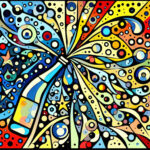
- giving baby sparkling water
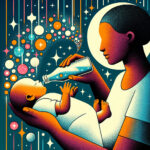
- sparkling water for child
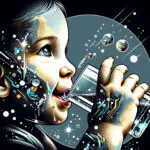
- does sparkling water affect breastfed baby

Please be careful and use at your own risk
None of the authors, contributors, administrators, or anyone else connected with Water Exotic, in any way whatsoever, can be responsible for your use of the information contained in or linked from these web pages.

